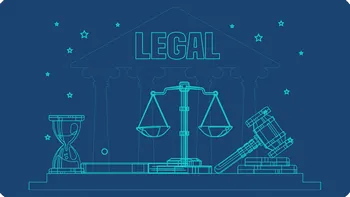Translation errors in legal translation can have profound consequences on individuals, businesses, court proceedings, legal rights, international incidents, and public perception.
ㅤㅤMistranslations in contracts and legal documents
ㅤㅤA simple mistake or mistranslation in a legal document can be costly. In contracts, a mistranslated or missing word can delay the finalization of agreements or even render them invalid, leading to financial losses and the potential for lawsuits. For instance, in a real estate transaction, a mistranslation of property specifications can result in a collapsed deal, causing financial setbacks for both the buyer and seller. Similarly, in an immigration application, a mistranslation of crucial information can lead to rejection, jeopardizing an individual’s ability to stay in a country and potentially disrupting their career or personal life.
ㅤㅤMistranslations in Court
ㅤㅤMistranslations in court proceedings, such as translated evidence or witness testimonies, can significantly impact trial outcomes. A mistranslation can be considered an evidentiary error, infringing on a party’s constitutional rights and potentially leading to mistrials or appeals.
ㅤㅤIn 2020, Leyla Güven, a prominent Kurdish politician, was sentenced to 22 years in prison on terror charges by a Turkish court. After being detained in 2018, she was released in 2019 under judicial control following an 80-day hunger strike.
During the second hearing of her court case on February 9, 2022, Güven raised concerns about the accuracy of the translation in the audio records of her speeches made in Kurdish. She claimed that the translations were full of errors. ㅤRecognizing the gravity of this issue, the judge granted her request for additional time to prepare her defense. The hearing was rescheduled for April 11, 2022, where the quality of the translated evidence would certainly play a crucial role in determining Güven’s future.
ㅤㅤLegal rights violations
ㅤㅤUsing unreliable legal translations can lead to violations of a suspect’s rights.
ㅤㅤIn February 2020, Corporal Mark Conrad conducted a traffic stop of a vehicle driven by Ramirez Mendoza in Pennsylvania State. During the stop, Conrad attempted to obtain consent to search the suspicious car. Instead of using an appropriate translation resource, Conrad relied on Google Translate on his phone. However, a video recording of the interaction, later reviewed in court, revealed that Google Translate mistranslated Conrad’s question, turning it into a statement.
ㅤㅤThis mistranslation became significant evidence in the case, as it created the impression of coercion and invalidated the voluntary consent given by Ramirez Mendoza. In such situations, law enforcement officers should use preprinted and vetted translations of authorized forms to ensure accurate communication and avoid violating suspects’ rights. Failing to use a credible translation source to obtain consent can lead to violations of a suspect’s rights, even if the suspect was aware of the intended action.
ㅤㅤPublic embarrassment and policy changes
ㅤㅤTranslation errors in high-profile documents can lead to public embarrassment and policy repercussions. In 2011, South Korea faced significant public embarrassment due to a multitude of translation errors in its free trade agreement. The second version of the agreement, which was presented to the public, contained a staggering 207 new translation mistakes. This incident followed an earlier review that also revealed numerous errors, leading the Ministry of Foreign Affairs and Trade to publicly apologize for the translation failures.
ㅤㅤThe consequences of these translation errors were far-reaching and had serious implications. First and foremost, the withdrawal of the revised translation resulted in a failure to meet the established treaty deadlines. This delay not only undermined the progress of the agreement but also created uncertainty and disrupted trade relations between South Korea and its trade partners.
ㅤㅤAdditionally, the translation errors had adverse effects on the economy and employment. The setback caused by the flawed translations led to job losses and hindered business opportunities, as the inaccurate translations affected the clarity and enforceability of the trade agreement. This, in turn, impacted companies relying on the agreement and potentially limited their growth and international expansion plans.
ㅤㅤMoreover, the incident prompted changes in government policies. The translation errors highlighted the need for improved translation practices and quality control within the government. As a result, the government was compelled to reevaluate its translation processes, implement stricter measures, and enhance the overall accuracy and reliability of translations in important official documents.
ㅤㅤTranslation errors in the legal field can have severe and far-reaching consequences. Accurate and reliable legal translation is essential to ensure fairness, protect legal rights, maintain diplomatic relationships, and uphold the integrity of legal systems. Diligent attention to detail, professional expertise, and the use of trusted translation partners are critical to avoiding the potential pitfalls of translation errors in legal contexts.







